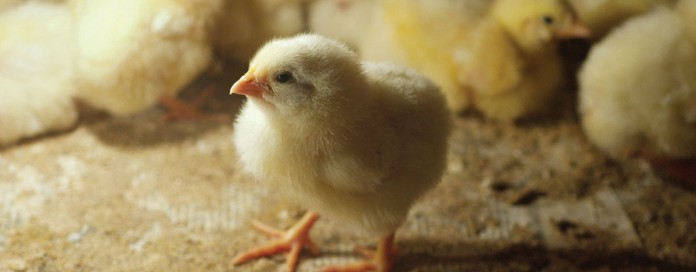LANSING – Health officials at the Michigan Departments of Agriculture and Rural Development (MDARD) and Community Health (MDCH) are warning parents that baby poultry may carry Salmonella, a common bacteria found in the droppings of poultry which can cause illness in people.
“Raising birds can be a great experience, but children need to be supervised and wash their hands after handling chicks and other poultry,” said MDARD State Veterinarian Dr. James Averill. “Even birds appearing healthy can carry bacteria which can make people sick.”
“Live poultry, especially baby poultry, can carry Salmonella germs, so it’s important to not keep them in the house and to wash your hands immediately after touching poultry or anything in the area where they live or roam,” said Dr. Matthew Davis, MDCH Chief Medical Executive. “Treating poultry like you would a pet increases the risk for Salmonella infection in a household.”
Salmonella can make people sick with diarrhea, vomiting, fever and/or abdominal cramps lasting 4-7 days or more.
Poultry handling tips
People should always assume baby chicks carry Salmonella and should follow these recommendations to protect themselves and others:
- Children younger than five-years-of-age, older adults or people with weak immune systems should not handle or touch chicks, ducklings or other live poultry because they are more likely to become severely ill.
- Wash your hands thoroughly with soap and water after touching live poultry or anything in the area where they live and roam. Adults should supervise hand washing for young children.
- Use hand sanitizer until you can wash your hands thoroughly with soap and water.
- Chicks should have a heat lamp and should be kept in a barn or garage, in a draft-free cage that keeps predators out.
- Always keep poultry away from areas where food or drink is prepared, served or stored, such as kitchens or outdoor patios.
- Do not kiss the chicks
- Do not touch your mouth, smoke, eat or drink after handling live poultry.
- Clean all equipment such as cages, feed, water containers and other materials associated with raising or caring for live poultry outside the house.
For more information, visit: http://www.cdc.gov/features/











